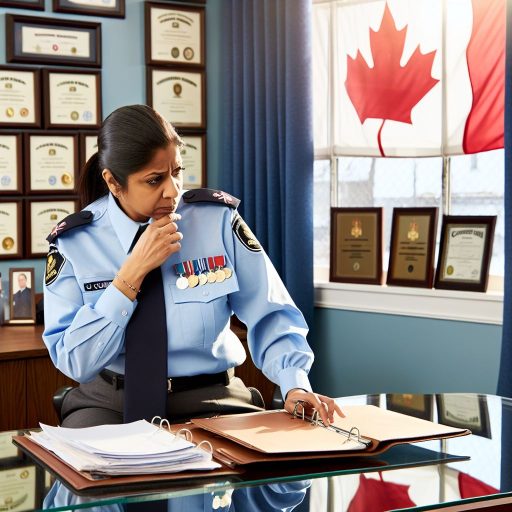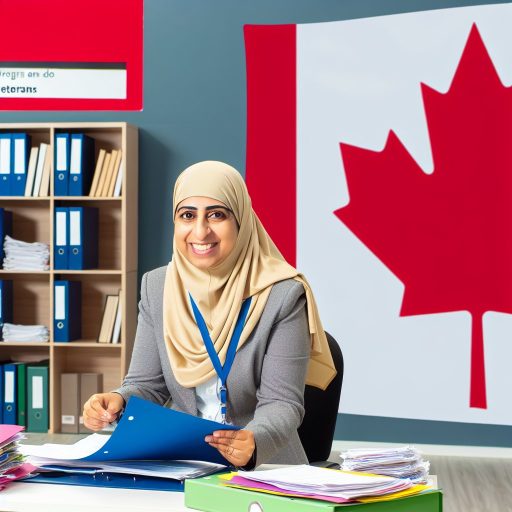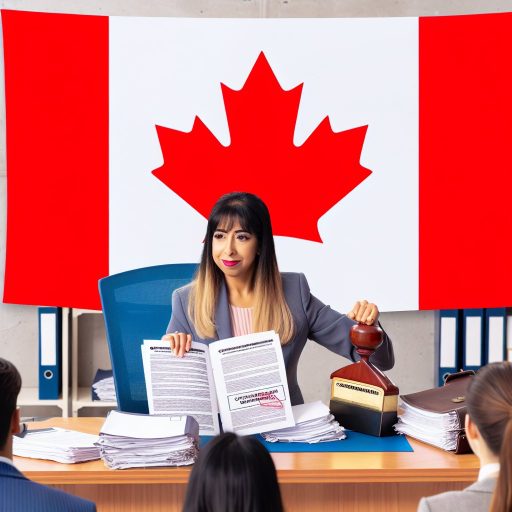Understanding Legal Frameworks and Regulations Affecting Ombudsman Roles
Importance of Legal Knowledge
An ombudsman must possess a strong understanding of legal frameworks.
This knowledge helps them navigate disputes effectively.
Additionally, it builds trust with the public and stakeholders.
A comprehensive grasp of regulations is essential for informed decision-making.
Familiarity with Relevant Legislation
Ombudsmen should be familiar with key legislation relevant to their role.
This includes laws regarding administrative procedures.
Moreover, understanding rights protection laws is crucial for fair service.
Such familiarity aids in resolving issues fairly and efficiently.
Awareness of Regulatory Bodies
Awareness of regulatory bodies enhances an ombudsman’s effectiveness.
They must know which organizations govern their specific areas.
Connecting with these bodies can provide additional resources.
Furthermore, collaboration may lead to more effective outcomes.
Continuous Legal Education
Legal education should be a continuous process for ombudsmen.
They must stay updated on changes in laws and regulations.
Attending workshops or courses is beneficial for ongoing development.
Such efforts ensure they remain effective in their roles.
Interpreting Legal Documents
Strong skills in interpreting legal documents are necessary for ombudsmen.
They frequently review reports, policies, and case files.
Clear understanding helps in identifying relevant legal issues.
Consequently, this skill aids in developing appropriate resolutions.
Collaborative Engagement with Legal Experts
Collaboration with legal experts can enhance an ombudsman’s effectiveness.
Working alongside attorneys provides deeper insights into complex issues.
Furthermore, such partnerships can lead to more satisfactory outcomes.
Building a network of legal professionals is thus beneficial.
Strong Analytical and Critical Thinking Skills for Investigating Complaints
Importance of Analytical Skills
Analytical skills play a critical role in an ombudsman’s work.
Unlock Your Career Potential
Visualize a clear path to success with our tailored Career Consulting service. Personalized insights in just 1-3 days.
Get StartedThese skills help them examine complex issues effectively.
Ombudsmen must break down complaints into manageable parts.
They analyze problems to identify root causes quickly.
Thus, analytical skills facilitate fair evaluations.
Critical Thinking in Decision Making
Critical thinking is essential for making informed decisions.
Ombudsmen assess various perspectives before concluding.
They evaluate evidence logically and objectively.
This process enhances the quality of their resolutions.
Consequently, critical thinking leads to more equitable outcomes.
Steps in the Investigation Process
Investigations typically follow a structured approach.
- First, they gather all relevant information.
- Next, they identify key stakeholders.
- Then, they formulate hypotheses based on the data.
- Subsequently, they test these hypotheses through interviews.
- Finally, they compile findings into a comprehensive report.
Each step requires strong analytical and critical thinking skills.
Tools and Techniques for Improving Skills
Ombudsmen can enhance their skills through various methods.
- Participating in workshops focused on critical thinking.
- Engaging in role-playing scenarios to test responses.
- Seeking mentorship from experienced professionals.
- Utilizing problem-solving frameworks to guide analyses.
These techniques strengthen an ombudsman’s investigative abilities.
Excellent Communication Skills
Importance of Communication
Excellent communication skills are vital for an ombudsman.
These skills help convey complex findings clearly.
Effective communication also builds trust with stakeholders.
Verbal Communication
Verbal skills enable an ombudsman to articulate findings verbally.
Engaging in discussions requires clarity and confidence.
Moreover, listening is equally essential in these conversations.
Effective questioning helps gather essential information.
Written Communication
Written reports must be precise and well-organized.
Strong writing helps disseminate findings to a wider audience.
Additionally, writing clear recommendations is crucial.
Using appropriate language ensures messages resonate with readers.
Nonverbal Communication
Nonverbal cues can enhance verbal communication significantly.
Understanding body language aids in interpreting responses.
Furthermore, maintaining eye contact fosters engagement.
Using appropriate gestures can emphasize key points.
Developing Communication Skills
Continuous improvement of communication skills is essential.
Participating in workshops can enhance these skills.
Additionally, seeking feedback from peers promotes growth.
Practicing public speaking boosts confidence and clarity.
Uncover the Details: Key Characteristics of Successful Correctional Officers
Empathy and Interpersonal Skills to Handle Sensitive Situations
Importance of Empathy
Empathy allows an ombudsman to connect with individuals on a personal level.
It involves understanding and sharing the feelings of others.
This skill helps in addressing concerns effectively and compassionately.
Moreover, empathetic communication can ease tense situations.
Building Trust Through Interpersonal Skills
Strong interpersonal skills are essential for building trust with stakeholders.
An ombudsman must engage actively and listen to people’s concerns.
Using eye contact and open body language fosters a welcoming environment.
Furthermore, actively involving individuals in discussions enhances transparency.
Navigating Sensitive Situations
Handling sensitive situations requires tact and discretion.
Ombudsmen must approach each case with cultural sensitivity.
They should remain calm and composed during difficult conversations.
This helps to create a safe space for open dialogue.
Effective Conflict Resolution Techniques
Employing conflict resolution techniques contributes to successful outcomes.
Ombudsmen should identify common ground between conflicting parties.
This facilitates mutual understanding and encourages collaboration.
Additionally, guiding individuals towards a solution strengthens relationships.
Continuous Self-Reflection and Growth
Self-reflection allows ombudsmen to assess their interpersonal effectiveness.
Seeking feedback from peers promotes personal and professional growth.
Therefore, continual development of empathy and interpersonal skills is crucial.
See Related Content: Day in the Life of a Canadian Border Services Officer
Conflict Resolution and Negotiation Skills
Understanding Conflict Resolution
Conflict resolution involves addressing disputes constructively.
An ombudsman must identify the root causes of conflicts.
This understanding helps facilitate meaningful dialogue.
Moreover, recognizing differing perspectives is crucial.
Effective Negotiation Techniques
Negotiation requires clear communication and active listening.
These skills promote an environment of trust and cooperation.
Using open-ended questions can draw out valuable insights.
Furthermore, summarizing key points can ensure alignment.
Building Relationships
Strong relationships enhance the mediation process.
Ombudsmen must cultivate rapport with all parties involved.
This rapport helps foster open communication and transparency.
Additionally, empathy plays a vital role in relationship building.
Strategies for Mediation
Implementing structured mediation processes is essential.
Setting ground rules helps create a respectful atmosphere.
Additionally, encouraging collaboration leads to better solutions.
A neutral stance allows the ombudsman to facilitate effectively.
Training and Development
Ongoing training in conflict resolution is important.
Workshops and simulations provide practical experience.
Moreover, learning from experienced professionals enhances skills.
Continuous improvement ensures effective dispute management.
Delve into the Subject: How Ombudsmen Uphold Rights and Justice in Canada

Strong Organizational Skills for Managing Multiple Cases and Documentation
Importance of Organization
Effective organization is crucial for an ombudsman.
It helps in managing multiple cases efficiently.
Moreover, it ensures accurate documentation.
Skills Needed for Organization
First, attention to detail is vital.
Details can significantly affect case outcomes.
Second, time management skills are essential.
These skills allow for timely responses to inquiries.
Tools for Effective Organization
- Digital management tools streamline documentation processes.
- Case management software keeps track of progress.
- Spreadsheets allow for quick data analysis.
Establishing an Organizational System
Creating an organized filing system is crucial.
This system should be easy to navigate.
Additionally, regular reviews of case files enhance organization.
Continuous Improvement
Organizational skills require ongoing development.
Participating in workshops can aid improvement.
Feedback from colleagues also fosters better practices.
Gain More Insights: How to Prepare for a Veterans Affairs Officer Interview
Cultural Competency and Awareness to Address Diverse Community Needs
Understanding Cultural Competency
Cultural competency involves recognizing and respecting different cultural backgrounds.
It requires a commitment to learning about various cultural practices and beliefs.
This understanding helps ombudsmen better connect with community members.
Respecting individual differences enhances trust in the ombudsman role.
Elements of Cultural Awareness
Cultural awareness consists of several key elements.
- Recognizing one’s biases and assumptions
- Understanding cultural contexts and communication styles
- Adapting approaches to meet specific community needs
These elements foster a more inclusive dialogue.
They promote fairness and understanding in conflict resolution.
Strategies for Developing Competence
Ombudsmen can adopt specific strategies to build cultural competency.
- Engage in community outreach initiatives
- Participate in training workshops focused on diversity
- Collaborate with community leaders to understand local dynamics
Each strategy enhances the ability to serve diverse populations.
Moreover, these efforts strengthen community trust.
Benefits of Cultural Competence
Cultural competence brings numerous benefits to ombudsman practices.
- Improved communication with community members
- Increased effectiveness in resolving conflicts
- Greater public trust in the ombudsman office
These benefits ultimately lead to better outcomes for all stakeholders.
Furthermore, they contribute to a more equitable society.
Attention to Detail for Thorough and Accurate Analysis of Cases
Importance of Attention to Detail
An ombudsman plays a critical role in ensuring justice.
Consequently, attention to detail is essential in every case.
It ensures that all facts and nuances are accurately recorded.
A meticulous approach leads to fair and just resolutions.
Identifying Key Information
First, an ombudsman must identify key information quickly.
This includes names, dates, and relevant incidents.
Accurate identification helps in building a strong case profile.
Moreover, missing details can lead to significant oversights.
Data Analysis Skills
Next, data analysis plays a vital part in case evaluation.
An ombudsman reviews various documents for contradictions.
They assess evidence to uncover underlying issues.
Thus, analytical skills enable them to draw relevant conclusions.
Maintaining Objectivity
Objectivity is another crucial aspect of attention to detail.
Ombudsmen must analyze cases without bias or personal opinions.
A clear and impartial perspective leads to trust in the process.
Furthermore, it ensures that all parties feel heard and respected.
Documentation and Reporting
Thorough documentation is essential in each case.
Ombudsmen must record rationales and findings comprehensively.
Detailed reports enhance transparency and accountability.
Consequently, well-documented cases prevent misunderstandings.
Continuous Improvement
Finally, a commitment to continuous improvement is crucial.
Ombudsmen should regularly review past cases for lessons learned.
This reflection helps in enhancing analytical processes and skills.
As a result, they become more effective in their roles.
Additional Resources
Many Voices One Mind: a Pathway to Reconciliation – Canada.ca




